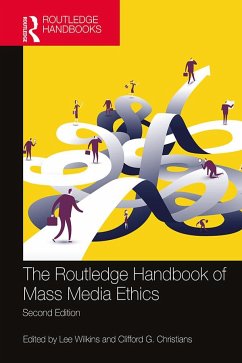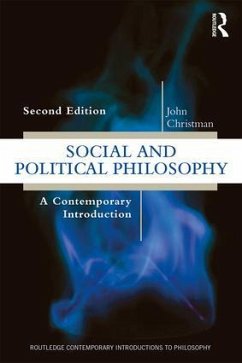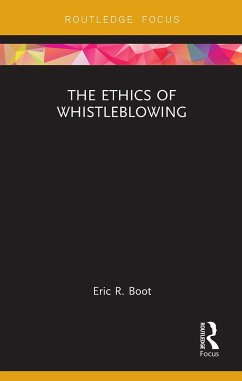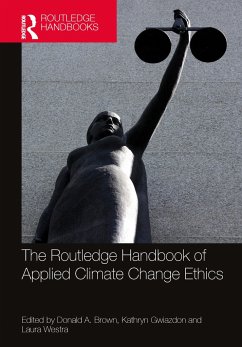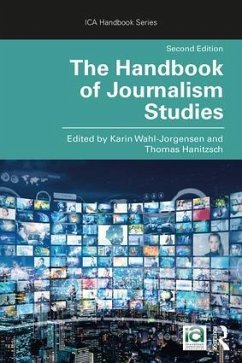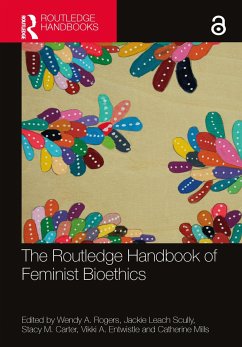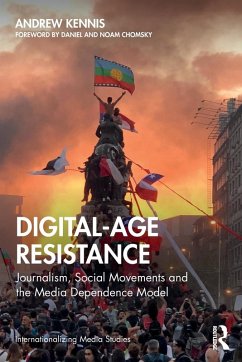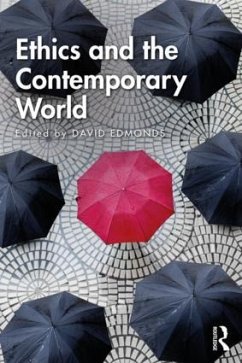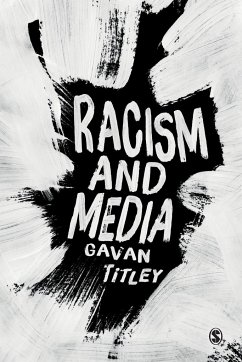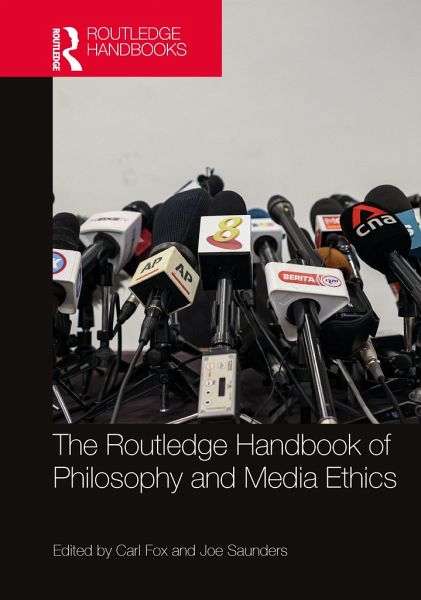
The Routledge Handbook of Philosophy and Media Ethics
Versandkostenfrei!
Versandfertig in 6-10 Tagen
234,99 €
inkl. MwSt.
Weitere Ausgaben:

PAYBACK Punkte
117 °P sammeln!
The media informs, entertains, and connects us. It is woven into the fabric of politics. Its increasing immediacy has become an inescapable feature of almost everybody's life. We are, at the same time, subject to the media and participants in it. The ethical questions it raises have never been more urgent. Trust is in short supply, but we need to share information while dealing with problems like misinformation, disinformation, and echo chambers. And what responsibilities fall on the state, and on other actors such as artists, advertisers, and social media users, as we reckon with endemic prob...
The media informs, entertains, and connects us. It is woven into the fabric of politics. Its increasing immediacy has become an inescapable feature of almost everybody's life. We are, at the same time, subject to the media and participants in it. The ethical questions it raises have never been more urgent. Trust is in short supply, but we need to share information while dealing with problems like misinformation, disinformation, and echo chambers. And what responsibilities fall on the state, and on other actors such as artists, advertisers, and social media users, as we reckon with endemic problems like racism, sexism, and classism?
The Routledge Handbook of Philosophy and Media Ethics is an outstanding survey and assessment of this vitally important field. Comprising thirty chapters written by an international team of contributors, the Handbook is divided into five parts:
Freedom of Speech, Privacy, and CensorshipThe News MediaBroadening the Scope: Giving Other Aspects of the Media their DueJustice, Power, and RepresentationVice and Virtue Online
The Routledge Handbook of Philosophy and Media Ethics is essential reading for students and researchers in philosophy, media and communication studies, politics, and law, as well as practising media professionals and journalists.
The Routledge Handbook of Philosophy and Media Ethics is an outstanding survey and assessment of this vitally important field. Comprising thirty chapters written by an international team of contributors, the Handbook is divided into five parts:
Freedom of Speech, Privacy, and CensorshipThe News MediaBroadening the Scope: Giving Other Aspects of the Media their DueJustice, Power, and RepresentationVice and Virtue Online
The Routledge Handbook of Philosophy and Media Ethics is essential reading for students and researchers in philosophy, media and communication studies, politics, and law, as well as practising media professionals and journalists.





